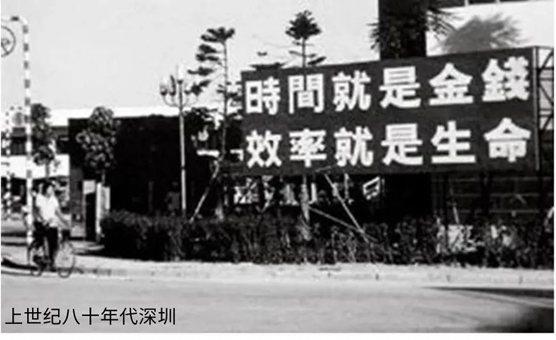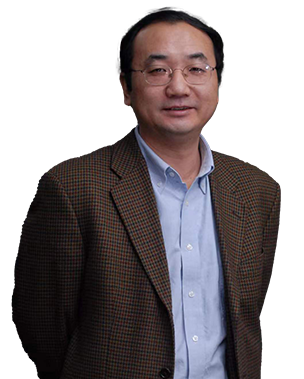Time flies, and the old story unfolds (Series 6)
Carrots and sticks are a consistent practice of the United States in international trade exchanges. Especially for non market economy countries, the US trade policy has always been political. After World War II, American law stipulated that the Communist Party countries were not given the most favored nation treatment, but they were treated differently according to their affinity, likes, and dislikes. The most favored nation treatment is the cornerstone of the General Agreement on Tariffs and Trade (GATT). Article 1 of the GATT clearly stipulates that members must unconditionally grant each other the most favored nation treatment. When Romania and Hungary joined the General Agreement in the same year, the above provisions of United States domestic law directly conflict with the General Agreement. Therefore, the United States chose not to apply to each other in the General Agreement with these two Eastern European countries.
The most favored nation treatment is an ancient basic rule in international trade. In short, it means treating everyone equally. The trade preferences and benefits I give you are equally given to them, and the benefits he gives you are equally given to me. It can be said that without MFN treatment, there would be no trade transactions. The import tariffs and MFN tax rates of various countries are several times and dozens of times lower than the ordinary tax rates without MFN. For example, China's current import tax rate on small cars is 15% for the most favored nation tax rate and 270% for the ordinary tax rate.
The most famous trade policy dominated by American politics is an amendment to the 1974 Trade Law. In the former Soviet Union, where Jews were restricted from immigrating abroad, the United States Congress drafted and finally passed a bill by two members of Congress, Jackson and Vanick, stipulating whether to grant MFN treatment to communist countries, depending on the number of Jews allowed to immigrate in their territory each year. This is the infamous "Jay Watt Amendment.". Therefore, the United States Congress annually discusses and reviews the most favored nation treatment for all Communist countries. After the establishment of diplomatic relations between China and the United States in 1979, the bilateral trade agreements provided for mutual MFN treatment, but the United States Congress also reviewed annually whether the MFN treatment granted to China was continued. Although China has not restricted the issue of Jewish immigration, the review has gradually evolved to be linked to human rights issues and bilateral relations.
The above-mentioned trade laws of the United States do not comply with the provisions of the General Agreement on unconditional most-favoured-nation treatment for members. Upon China's entry into the General Agreement, the United States should amend its domestic legislation to grant China unconditional most favored nation treatment without annual review. However, the United States also has an option in the General Agreement. That is, if it wants to preserve its domestic law practices towards China, the United States can invoke the "non applicability between members" clause of the General Agreement. In this way, both China and the United States are members of the General Agreement, but there is no legal relationship between them. The rules of the General Agreement are invalid for both China and the United States. This is the same as the mutual exclusion between the United States and Romania and Hungary in the General Agreement.

Lake Geneva
在法律人眼里,互不适用是总协定和后来的WTO中一个有意思的问题。条约中,缔约方对条约部分条款可提出保留,如该保留获得其他缔约方同意,则保留部分对该缔约方不生效,这是条约法上的条约保留规则。而一个条约的全部内容在两个缔约方之间无效,还不多见。当时总协定九十多个缔约方中,曾有51个先后63次援引过互不适用条款。绝大多数的互不适用是缔约方之间外交上互不承认或其他政治原因所致。如1948年印度巴基斯坦不承认南非,上世纪六十年代罗马尼亚不承认韩国,就是如此。而政治原因所致的互不适用,要数美国对罗马尼亚和匈牙利。最有意思的是,多国出于经济原因对日本的互不适用。互不适用的51个缔约方中,有45个是与日本不适用总协定。1955年日本加入总协定时,欧洲各国及澳大利亚新西兰共14个缔约方对日本不适用总协定,这些国家占日本当时对外贸易的40%。之所以如此,是因为它们认为日本当时擅长低价倾销、大量使用童工女工、侵犯知识产权等不正当竞争,国内价格不反映供求关系,没有特殊的保障机制,这些国家担心本国市场受日本产品冲击,于是彻底排除了与日本发生总协定的权利义务关系。这些欧洲国家在非洲的殖民地六十年代独立后,继承了前宗主国对日本的互不适用政策。所以日本加入总协定后相当一段时间是个不完整的成员。随着国内改革,日本前后花了十余年时间,才逐个与缔约方解除了互不适用。
In the eyes of legal people, mutual non applicability is an interesting issue in the General Agreement and later WTO. In a treaty, a contracting party may make reservations to certain provisions of the treaty. If the reservation is agreed by other contracting parties, the reservation does not take effect for that contracting party. This is the treaty reservation rule in treaty law. It is not uncommon for the entire content of a treaty to become invalid between two contracting parties. At that time, 51 of the more than 90 contracting parties to the General Agreement had invoked the mutual exclusion clause 63 times in succession. The vast majority of mutual non application is caused by diplomatic non recognition or other political reasons between the contracting parties. For example, India and Pakistan did not recognize South Africa in 1948, and Romania did not recognize South Korea in the 1960s. The mutual inapplicability caused by political reasons is mainly due to the United States' treatment of Romania and Hungary. The most interesting thing is that many countries do not apply to Japan for economic reasons. Of the 51 contracting parties that do not apply to each other, 45 do not apply the General Agreement with Japan. When Japan joined the General Agreement in 1955, a total of 14 contracting parties from European countries and Australia and New Zealand did not apply the General Agreement to Japan, which accounted for 40% of Japan's foreign trade at that time. The reason for this is because they believe that Japan was adept at unfair competition such as low-cost dumping, massive use of child and female labor, and infringement of intellectual property rights. Domestic prices did not reflect supply and demand, and there was no special safeguard mechanism. These countries were concerned that their market would be impacted by Japanese products, so they completely ruled out the rights and obligations relationship under the General Agreement with Japan. After independence in the 1960s in the colonies of Africa, these European countries inherited the policy of mutual exclusion imposed by the former suzerain on Japan. So Japan was an incomplete member for quite a while after joining the General Agreement. With domestic reform, it took Japan more than a decade to resolve the incompatibilities with the contracting parties one by one.
After more than a decade of silence in the General Agreement, mutual non applicability has once again emerged as China and the United States wrestle over China's entry into the General Agreement. This has become a looming cloud for China and the General Agreement as a whole. Entering the General Agreement forced the United States to amend its domestic laws and grant China unconditional most-favored-nation treatment as stipulated in the General Agreement, which became the primary fortress that China had to break in the Sino US negotiations.
During each meeting of the Working Group to consider and answer questions about China's trading system, and during the intersessional period of the Working Group, the Chinese and US sides conducted intensive consultations and negotiations in Geneva and their respective capitals. The Chinese side also invites the American delegation to visit the special economic zones Xiamen and Shenzhen. The effectiveness of China's economic system reform is fully reflected in the vigorous development of the special economic zones. "In Shekou, Shenzhen, and Xiamen, we have seen how effectively China has developed its economy and trade through the implementation of market principles, and the special economic zones have mobilized the vitality of all aspects." "We believe that if the conditions already established in these special zones are also applied in other regions, this will be a bright future for China." "

Shenzhen in the 1980s
The Working Group has reviewed and evaluated China's trading system for a year, and the issues and concerns of all parties regarding China's trading system have been clear. At the beginning of 1989, China and the United States agreed to conclude the review work as soon as possible, and both sides separately listed the conditions for China's entry into the General Agreement in the draft protocol (i.e., the accession agreement). The United States stated that as long as the terms of the protocol are negotiated and China is committed to bringing its economic and trade system into line with the General Agreement, the United States government can persuade Congress to amend relevant legislation and grant China unconditional most favored nation treatment. In May of the same year, substantive progress was achieved in the negotiations. The United States advocated that the granting of MFN treatment to China be considered together with the substantive issues of the Protocol, especially the resolution of special safeguard clauses. The United States stated that the Bush administration could submit legislation to Congress to grant China unconditional most favored nation treatment. Mr. Newcock, who has a moustache, reported to his boss, U.S. Trade Negotiator Sears, that he is optimistic about reaching an agreement with China.
In front of the tunnel, light appears.
To be continued
(This article is translated by software translator for reference only.)
Related recommendations
- Tax lawyers review the draft of the revised Tax Collection and Administration Law for soliciting opinions
- New Measures for Punishing "Dishonesty" by the Supreme People's Court at the Two Sessions in 2025 (Part 3): "Height Limit" Single Release Mechanism
- New Measures for Punishing "Dishonesty" by the Supreme People's Court at the Two Sessions in 2025 (Part 2): Grace Period System
- Interpretation of the Management Measures for Compliance Audit of Personal Information Protection - Feeling the Rhythm and Rhythm of Regulatory Flow



